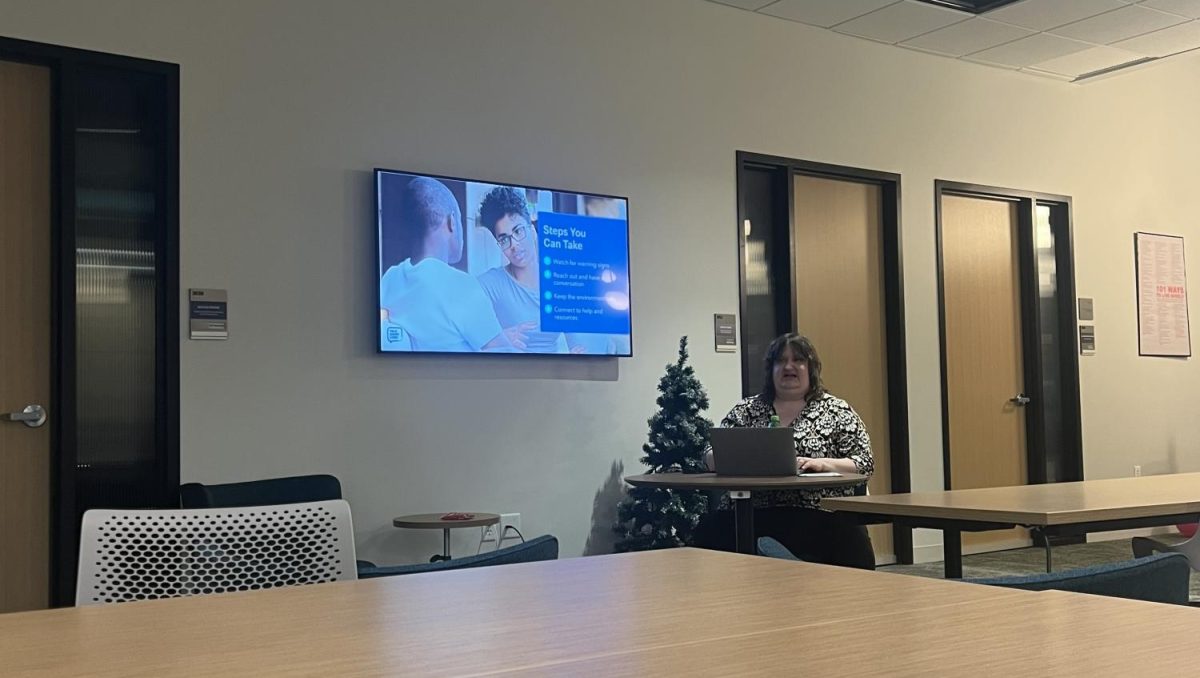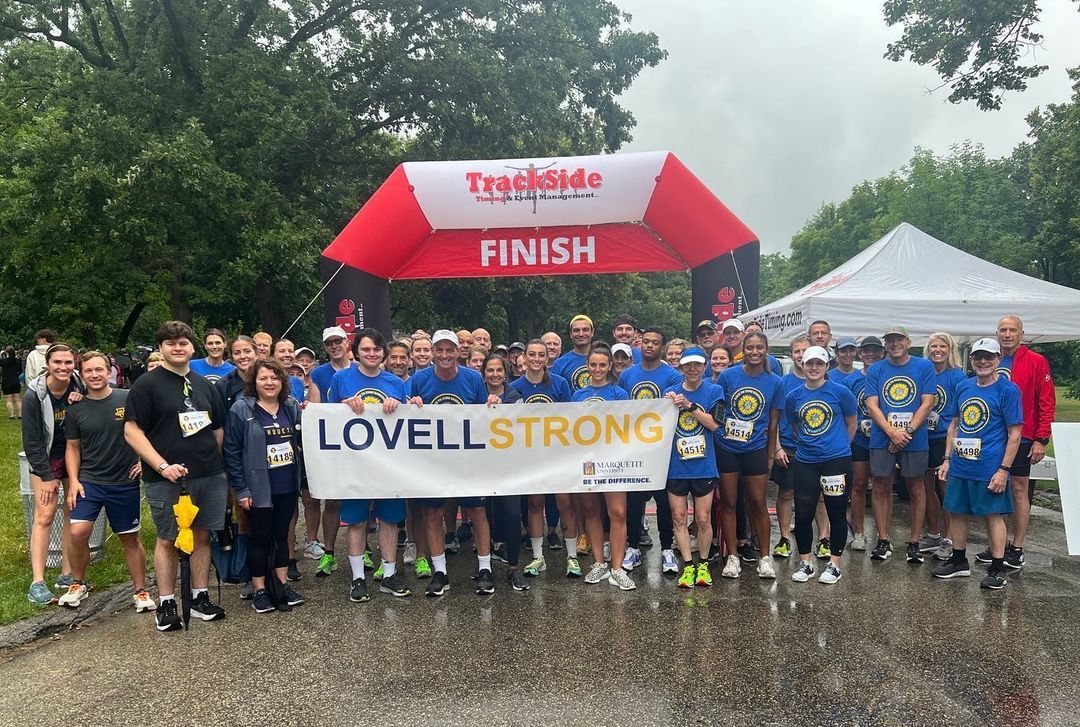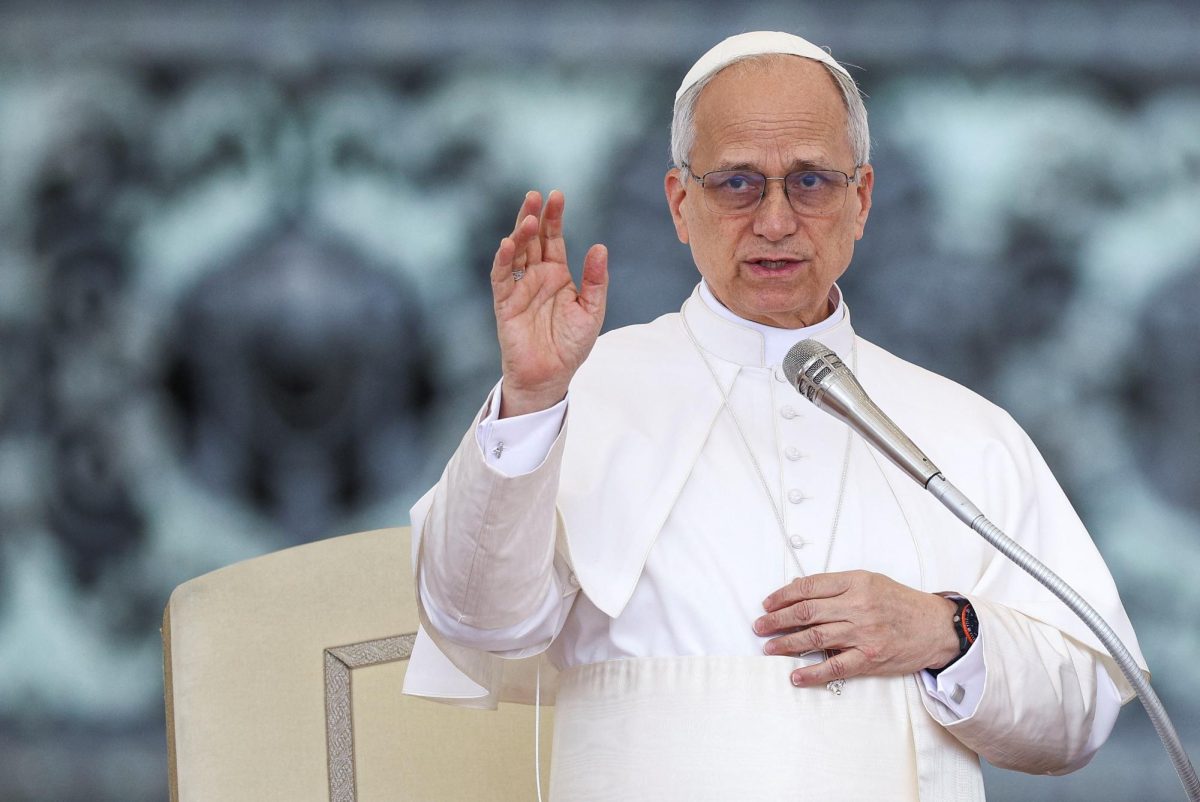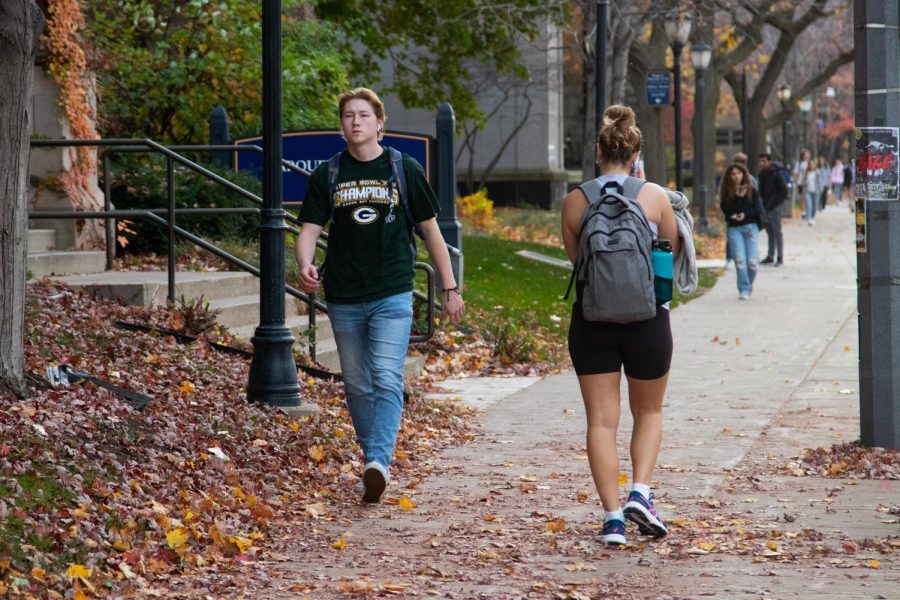Suicide is not a topic some are eager to discuss, and talking about it in general can be difficult. Education and awareness about this topic are available, but a number of people don’t always know how to approach talking about suicide, especially if it involves a loved one.
This is why Marquette, and other universities across the country, host events like Talk Saves Lives.
On Monday, the Center for Student Wellness hosted Allison Wojnar, a speaker from The American Foundation for Suicide Prevention, who came to educate students on ways to talk about the topic of suicide. Talk Saves Lives was held to create awareness and prepare for the Out of the Darkness Walk, which will be held in April.
Upon entering the room, event attendees were met by representatives of Student Wellness. On one table, there was food. The event catered Jimmy John’s sandwiches and also had snacks like Cheeze-Its, fruit snacks and Nutri-Grain bars. On another table parallel to that were cards from AFSP with resources like phone numbers and different colors of bracelets with their logo.
The event was attended by Marquette students, who took seats around the table. Attendees went around introducing themselves and saying what brought them to the event, to get better acquainted before sensitive topics were discussed.
“AFSP’s mission is to save lives and bring hope to those affected by suicide,” Wojnar said. “Talk Saves Lives provides guidance to community members on how to recognize warning signs, have a conversation and connect people to help.”
Wojnar said that everyone has mental health, just like everyone has physical health, and encouraged discussion in the room for people to talk about what mental health means to them.
“AFSP believes that everyone has a role in reducing the risk of suicide,” Wojnar said.
Wojnar said that there are many factors that can cause a person to have thoughts about suicide. She also said certain groups of people such as older adults, veterans, LGBTQ+ individuals and owners of firearms have higher rates of suicide than other identity groups.
“When suicide itself is talked about safely and accurately we can help reduce judgment and stigma around suicide and this can encourage people who are at risk to seek help,” Wojnar said.
Wojnar explained how one of the first steps people can take in preventing suicide is paying attention to warning signs. The next steps people can take are reaching out and having conversations, keeping their environment safe and then connecting them to professional help and resources.
“Remember, it never hurts to trust your gut on this, trust your instincts and start a conversation about how someone is doing,” Wojnar said.
Elizabeth Gnau, a junior in the College of Nursing and chair of the Out of the Darkness Walk, first heard about AFSP when she was a senior in high school.
“I’m from the Madison area and they do these campus walks, and UW Madison’s is one of the biggest in the country,” Gnau said. “My freshman year at Marquette, I knew Marquette didn’t have that program on campus and I thought that would be something students would really benefit from.”
This is Gnau’s third year bringing programming from AFSP to Marquette. She said events like Talk Saves Lives educate and build community in anticipation of the Out of the Darkness Walk.
“What I’ve always found to be very impactful about [the walk] is that there are so many people coming together who have all been impacted by suicide in some way or another,” Gnau said.
There are a variety of local resources for those who may be affected by suicide in any way, shape or form, like the Mental Health Emergency Center, Mental Health America of Wisconsin or ‘988’ number for the suicide crisis hotline.
This story was written by Ellie Golko. She can be reached at elizabeth.golko@marquette.edu.








